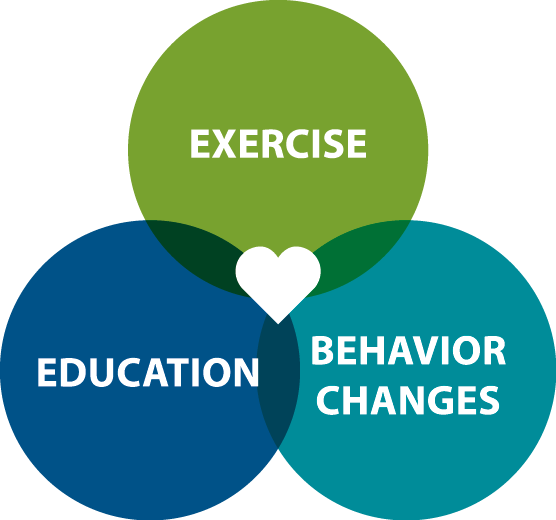Vicoprofen Rehab Hospital Near Me Nashville TN
Home
Top Vicoprofen Rehab Hospital Near Me Nashville TN Resources & Info
Vicoprofen Rehab Hospital Near Me Nashville TN
When you attend aftercare, you have a higher chance of staying sober. By understanding the drug rehab process, you can choose the best fit for you or a loved one. Patients meet with physicians regularly during detox. If you scored 3, there is a 99% chance you’re addicted.
The psychological dependency on drugs is harder to treat because it involves learning new patterns of behavior. Family pressure or marriage problems arise when we start using drugs or alcohol and this could be s sign that things are escalating. For legal drugs such as alcohol, complete abstention—rather than attempts at moderation, which may lead to relapse—is also emphasized ("One is too many, and a thousand is never enough.") Whether moderation is achievable by those with a history of abuse remains a controversial point, but is generally considered unsustainable.[2] Types of treatment[edit] The brain’s chemical structure is impacted by drugs of abuse and these changes are present long after an individual stops using, This change in brain structure increases risk for relapse, making treatment an important part of the rehabilitation process.[3] Various types of programs offer help in drug rehabilitation, including: residential treatment (in-patient/ out-patient), local support groups, extended care centers, recovery or sober houses, addiction counselling, mental health, and medical care. Although many teenagers experiment with drugs, most don't become regular users but may try the drug later again as adults. We have seen many, many people like you make a full recovery from drug and alcohol addiction.
Right here are Some Even more Resources on Benzo Addiction Recovery

Even more Details Around Addiction Drug Rehab Nashville TN
Christian addiction recovery programs work by guiding you through your recovery journey and helping you to find a renewed faith for your own personal benefit and to benefit your recovery. If after answering a series of questions, the representative believes you have an addiction problem, he or she will help you find the right treatment option.
More Info Around Benzo Addiction Recovery
Hang your Christmas lights and hide colored eggs. Psychological measures and treatment are the most successful way forward in adopting new positive brain rewarding practices, challenging and changing thinking and maintaining recovery. Do they feed the best parts of us or do they rob us of them? These “behind-the-scene” factors also come into play when determining what type of treatment is right for each individual. Cocaine, heroin, Ecstasy, GHB, marijuana and prescribed drugs are the most commonly used drugs in Connecticut. Whether you are a dependent or addict yourself or someone from your loved ones is experiencing the same situation, there are several rehabilitation centers and facilities which can help in alleviating the problem of addiction.
Extra Resources For Addiction Drug Rehab Nashville TN
The Betty Ford Institute defined recovery as achieving complete abstinence as well as personal wellbeing[21] while other studies have considered "near abstinence" as a definition.[22] The wide range of meanings has complicated the process of choosing rehabilitation programs. The fact is that the longer a person remains in the addictive cycle, the greater the pain and suffering that will result. Other strategies for detoxification reduce the addictive drug gradually. Over time, and with prolonged abuse of drugs, a person’s brain rewires itself to seek this new way of producing reward. If your drug use is causing problems in your life—at work, school, home, or in your relationships—you likely have a drug abuse or addiction problem. Source: National Clearinghouse for Alcohol & Drug Information When your teen has a drug problem Discovering your child uses drugs can generate fear, confusion, and anger. Of course, if you are willing to pay out of pocket for certain types of therapy, you should not narrow based on this. It is also a rehabilitation option for individuals whose addiction is less severe and doesn’t require inpatient treatment. We have found that people can thrive in a Christian outpatient treatment program if they have the proper motivation. The drub abuse questions that a drug addiction hotline will ask will vary. The professional rehabs that we work with only employ addiction professional with impressive credentials and experience including: Doctors, Nurses, Counsellors, Psychologists, Holistic therapist and Support workers. Their “at home” technique is designed to help people to recover in their usual surroundings, to prevent relapse and learn how to face triggers.
Click Here for More Information
Previous Next
You may also like:
Acamprosate Abuse Treatment Clinic Faith NC
Acamprosate Detox Zebulon NC
Christian Based Rehab Centers Sheffield MA
Dual Diagnosis Group Activities Saint John ND
Darvon Addiction Rehab Program Advance IN
Barbiturates Abuse Programs Geneseo IL
Clonidine Rehab Clinics Fairfax VA
Duodin Addiction Rehab Facilities Lagrange OH
Physiological Addiction Definition Tampa FL
Vicoprofen Rehab Facilities Columbia AL
Opium Detox Treatment Garita NM
Lorazepam Detox Centers Allenwood NJ
Private Drug Rehab New Providence IA
Barbiturates Detox Treatment Centers Polk PA
Tramadol Addiction Detox Facility Nelson WI
Fiorinal Rehab Kyburz CA
Xanax Rehab Near Me Starksboro VT
Hycomine Rehab Programs Brownell KS
Hycodan Rehab Treatment Programs Pitkin CO
Drug Rehab Detox West Point KY